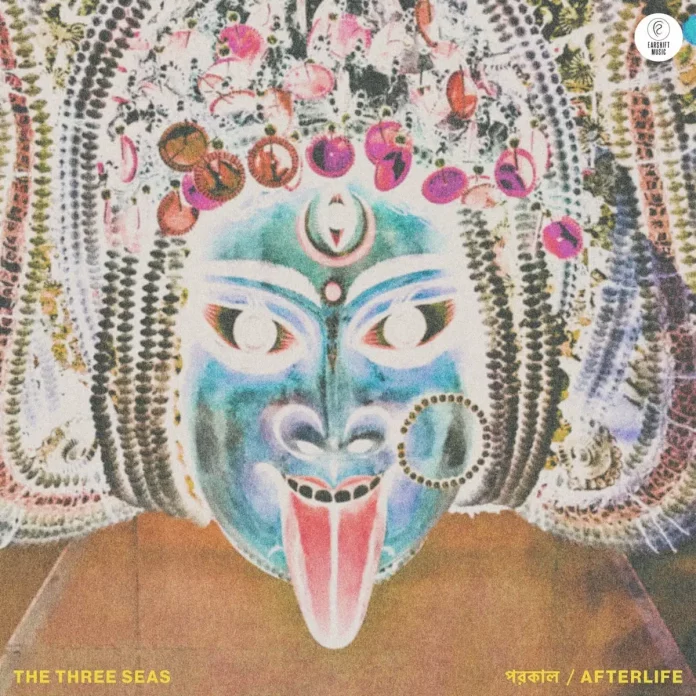The Three Seas is a cross-cultural collaboration, blending jazz, electronic music and folk from West Bengal. The ensemble’s third album, Afterlife, brilliantly melds these elements, featuring electronic and sax-led grooves alongside Indian folk instrumentation and traditional Baul singing.
The album’s opening track, Digital Alap, presents a contemporary twist on the opening section of a classical Indian raga. Here, the tanpura’s typical role as drone is replaced with an electronic equivalent, and the vocals of Raju Das Baul are also electronically filtered.
As the album progresses, the acoustic aspects and traditional influences can be better appreciated. Raju Das’s vocals really shine through on the two traditional Baul compositions – Moner Moto Pagol Palem Na and Menoka Mathaye (the latter also featuring a string quartet) – as well as his talents on the khamak, a strummed percussive instrument featured heavily in Bengali folk music.
Another highlight is Mr K, a composition written by Matt Keegan. Here, Raju Das’s khamak playing is brought to the fore, perfectly pitched against a heavy groove from Keegan on baritone saxophone.
The finale of Afterlife comes as a bit of a surprise: an acoustic cover of John Lennon’s Imagine featuring guitar, strings and vocals in Nepali sung by Deo Ashis Mothey. It’s a welcome tonal shift, though, and a beautiful cover that captures the multicultural approach of The Three Seas.
Discography
Digital Alap; Afterlife; Teesta; 3Cs Fanfare; Moner Moto Pagol Pelam Na; Dub Dupki; Menoka Mathaye; Dr K; Kalpana Gara (Imagine) (33.12)
Raju Das Baul (khamak, v); Deo Ashis Mothey (g, esraj, pc, v); Gaurab Chatterjee (d, dubki, v); Matt Keegan (bar, cl, elec, syn). Additional musicians include Veronique Serret (vn); David Wicks (vla); Heather Lindsay (clo); Declan Kelly, Finn Ryan (d). No recording information given.
Ear Shift Music EAR063
















